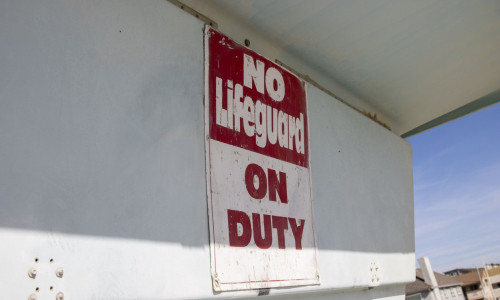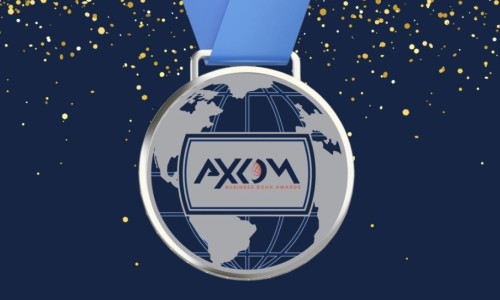 Franchise Suppliers & Private Equity
Franchise Suppliers & Private Equity
Acquisition alert: IFPG. The PE Profit Ladder isn’t just for franchisors and franchisee operating platforms that trade between private equity firms as those franchise businesses grow…, it’s increasingly the path for franchise suppliers as well. Each new owner brings a fresh perspective, capital for growth, and a different skillset as the journey evolves. CNL is managed by Levine Leichtman Capital Partners, LLC, one of the most experienced franchise investors. This is a successful exit by prior PE sponsor Princeton Equity Group.
 Bubbakoo's Burritos Acquired By Thompson Street Capital Partners
Bubbakoo's Burritos Acquired By Thompson Street Capital Partners
Franchise M&A is alive and well (despite recent economic headwinds) for high quality brands with the right stuff. This week's example: Bubbakoos Burritos. Beloved Jersey shore QSR Mexican offering that delivers quality and strong value for customers, protein forward, fun and irreverent branding - and passionate franchisees. Other things to note: - M&A trades just UNDER the largest PE firms active in franchising (e.g. KKR, Roark, Blackstone, etc) remains a great place to be, knowing there are large upstream buyers for brands that can increase scale and create strong franchisee outcomes. Thompson Street Capital Partners made a shrewd pick here. With steady and thoughtful nurturing this brand is primed for scale. - Focus on executing the model, not fast franchise sales. This brand is growing fast but in steady and controlled way. Quality over speed and the speed will take care of itself. - Founders - choose a proven partner. TSCP has a solid track record and good things are expected here too. - Did you know that of the franchises that at some point in their history reach $100M in systemwide sales, 23% never exceed $150M? (Source: FRANdata) Having the right support and scaffolding in place is critical to reach the next level. If you hit an inflection point, bringing in the right capital and strategic partner can make all the difference.
 Private Equity in Franchising: Impact, Trends & 2025 M&A Forecast
Private Equity in Franchising: Impact, Trends & 2025 M&A Forecast
Presented by the New England Franchise Association and Boston Franchise Business Network: Private equity has created a dominant position in franchising, with broad implications for all franchise stakeholders. In this dynamic session, we covered recent trends and made predictions about the 2025 M&A landscape. We also discussed how to be proactive and thoughtful about your strategy to engage with PE, whether you're a franchisor, franchisee, supplier, or even corporate employee. Live event with audience participation and questions.
 There Are No Franchise Lifeguards, and Don't Expect Private Equity to Save the Day
There Are No Franchise Lifeguards, and Don't Expect Private Equity to Save the Day
No lifeguards. Longer hold times. If it looks and smells like a "project" don't expect buyers to line up. This also applies to re-trades. This month in Franchise Times.
 Big Money in Franchising Wins Silver in Axiom Business Books Awards
Big Money in Franchising Wins Silver in Axiom Business Books Awards
Founded in 2007, the Axiom Business Book Awards recognize outstanding new titles that drive professional growth and inspire positive change. In a landscape where leadership and innovation are crucial, these awards highlight books that serve as valuable resources for enhancing business acumen, fostering collaboration, and inspiring transformation. Whether through promoting effective strategies, encouraging entrepreneurial spirit, or advancing ethical practices, the Axiom Business Book Awards celebrate the creativity and ingenuity behind influential works in the business sector.
 M&A Update & Franchise Perspective
M&A Update & Franchise Perspective
M&A Update & Franchise Perspective: - 95% of M&A activity in 2024 were middle market deals (S&P Global) - PE sponsor to PE sponsor deals reached ten-year high (45%) in 2024. (McKinsey) We have seen this play out in franchising....once on the PE Profit Ladder, brands are likely keep re-trading. - $2.5 trillion of dry powder still available (S&P Global) - Multiples @ exit increased, partly because sponsors were only successfully exiting high-quality assets with strong demand, driving up valuation averages (McKinsey). The rest were relegated to broken auction status and must try again later. - Median global buyout entry multiple 11.9x (McKinsey). We have seen franchisor trades in franchising exceed averages for similiarly-sized non-franchise deals. But too many sellers still come to market with inflated expectations - or we would see more deals getting done. You have to read the room. - Average leverage 4.1x debt to EBITDA (below 4.7x seen in 2021) demonstrating both valuation pressure and underwriting discipline (McKinsey) ....said another way, frothy pricing specifically driven by cheap debt that we saw in 2021 hasn't returned and likely won't anytime soon. Only high quality assets are seeing spirited bidding but this is based on their own merits. - Public to private deals will get more attention this year - if the markets undervalue good companies taking them private may be a better option than acquiring something from a downstream PE fund. - IPO exits remain challenging. PE-backed IPOs fell 7% in value and 20% in count in 2024. (McKinsey) In franchising, this means a small number of very large funds look like IPO-waiting rooms where assets can be carefully groomed, optimized, and combined to create IPO-ready packages, while tapping the securitization market to pay themselves for the trouble while they are waiting. - Exit backlog remains an issue. Average buyout hold time is 6.7 years. (McKinsey). We've seen more re-trading among limited partners and continuation funds recently to cope with this, but it's not a long term solution. This forces more PE sponsors to focus on the operating mechanics of value creation, not financial engineering. In franchising, this means a focus on everything that keeps franchisees focused on unit growth and increasing same store sales. The flip side is the opportunity for well-coordinated franchisee voices to be HEARD because management and sponsors need engagement and momentum from the franchisee base.
 Crumbl Is Reportedly For Sale
Crumbl Is Reportedly For Sale
It was only a matter of time. Crumbl is reportedly for sale. If they get their hoped for 10x valuation (approx $150M EBITDA) this will be a nice deal. The incoming PE sponsor will bring new eyes, is likely to invest in further growth, and has a predictable playbook. Franchisees in growing systems should always be prepared for the system to trade to a PE sponsor.
 PE May Soon Tap Retail Retirement Investors - But Where is Capital Actually Needed?
PE May Soon Tap Retail Retirement Investors - But Where is Capital Actually Needed?
Private equity may soon be able to tap retirement funds at some level, something PE has long lobbied for. While this may open significant new capital sources to PE investing, there is already an estimated $2 trillion of PE committed funds that need to be deployed. Pouring billions of new dollars into mega deals backed with debt will surely open new opportunities (and new risks) for retail investors. But what we really need are more private capital investors active in the micro and lower-middle market who are adept at this type of investing and who take an operational approach (versus financial engineering). According to the U.S. Census Bureau 2022 Annual Business Survey, 52.3% of business owners are 55 or older. Small business remains a critical economic engine in this country, but we don’t have enough hands-on investment practitioners able to accomplish the lift to help smaller businesses reach the next level. More focus here would unlock significant economic growth and create needed liquidity events for retiring Main Street founders and franchisees. We see this dynamic in the franchise sector, which has been successfully picked over by private equity. Fewer than 20 percent of active franchises have PE investment. Mega franchise deals by the likes of #KKR, #Bain, and #Blackstone are exciting to see, and I also expect to see a surge of #franchise re-trading in 2025-2026 as long-held assets come due to trade again. Consolidation in scale systems will also continue as structural forces nearly guarantee this activity. But what we need are more skilled investors, incubators, and capital pointed at smaller franchise deals. We need to move the needle for thousands sub-scale or sub-optimized franchise systems that are actively marketing their franchise opportunity to prospective franchisees but are currently unlikely to attract PE growth capital and strategic support even if they want it. Smaller systems are where the hard work needs to be done to protect franchisee outcomes, build critical support and infrastructure, and create growth opportunities. If PE succeeds in opening the retirement fund spigot, those funds will be mostly pointed at mega PE firms. We need a mechanism for smaller firms to tap that opportunity so they can deploy more growth capital into smaller businesses. I’d like to see more mega PE sponsor or create fund of funds pointed at active micro and LMM investors.
 Franchisees Have Influence Ahead of a Sale Process
Franchisees Have Influence Ahead of a Sale Process
If there are issues that need to be addressed, franchisees should be crisp and smart about your "ask." Get organized. Establish the precedent that franchisees can make themselves heard at the boardroom level. Do this well ahead of a sale process for maximum impact.
Popular Insights
As Seen In



PE Profit Ladder® Market Watch Newsletter
PRIVATE EQUITY’S IMPACT ON FRANCHISING
EMERGING BRANDS
TRENDS
BUILDING SMART
PROSPECTIVE FRANCHISEES
TURNAROUNDS & CASE STUDIES

